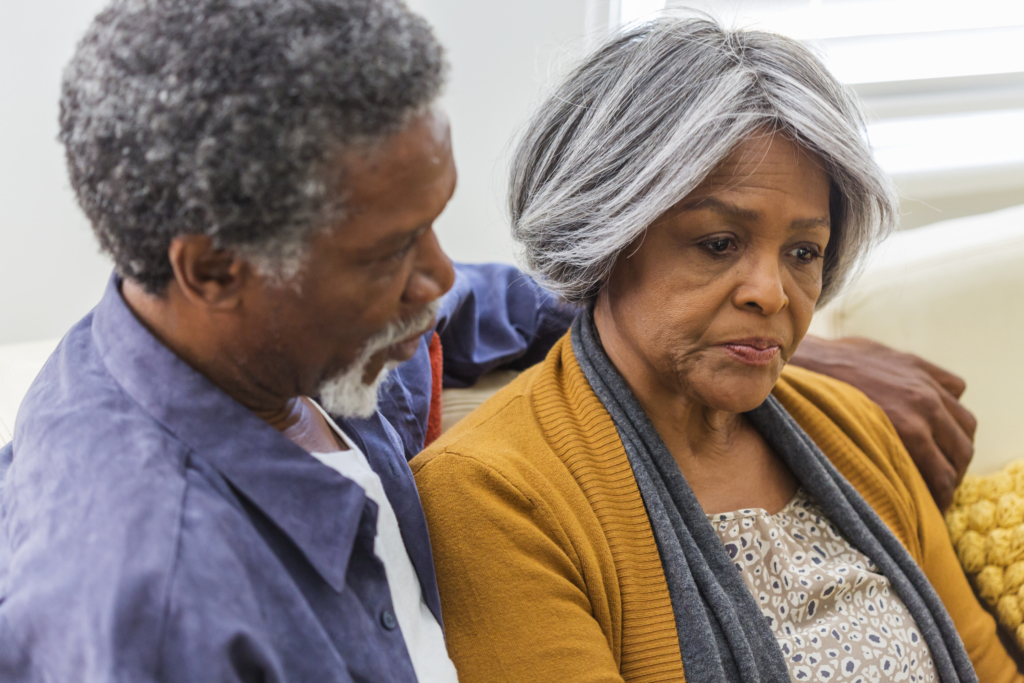By Alex Purcell
People with end-stage renal disease (ESRD) who have gone through dialysis can tell you that it is exhausting—and so can their loved ones. Not only does dialysis take a physical toll on the patient, it can also put significant stress on the patient’s relationships with their friends and family, right when they need those relationships the most. This dynamic can be especially complicated if the primary caregiver is a spouse or close relative. If you’re in this situation, as either a patient or a loved one, you may be feeling frustrated, sad or lonely. But there’s hope: transplant psychologists say that you can learn to maintain and potentially enrich your close relationships while undergoing dialysis.

It’s okay to rely on your family and friends. Dialysis can make patients feel weak, dehydrated and fatigued. It can also cause patients to rely on others more than they would normally, according to Jared Skillings, PhD, ABPP, a former transplant psychologist at Spectrum Health System in Grand Rapids, Michigan. “This shift in responsibility might lead patients to feel guilty. They may feel like a burden on family and friends, especially if they are usually not the type of person to receive help,” Skillings says. This guilt might also cause patients to push their loved ones away and inadvertently put stress on relationships. People on dialysis may also feel helpless or hopeless and can become clinically depressed. Adjusting to your new lifestyle changes may take some time, and your relationships with family and friends may change. Be patient with yourself.

Express yourself. The stress of treatment can amplify existing issues or yield new disagreements and miscommunications between patients and loved ones. These dynamics can be particularly difficult if the patient is struggling with anxiety or depression, as many people on dialysis do, says Skillings. Furthermore, tension between dialysis patients and their loved ones—especially caregivers—often occurs because all parties involved want to do what’s “right” for the patient, says Jody Jones, PhD, a transplant psychologist with the University of Iowa Hospitals and Clinics in Iowa City. This can lead to a number of other conflicts, she adds. “Communication is tremendously important, but will vary greatly by individual,” she says. “You should discuss practical matters, but ideally, everyone should be able to express their hopes and fears as well. Expressing our darker feelings and thoughts takes the power away from them.”
This kind of open and honest communication knocks down barriers and allows for closer bonds and understandings to form during difficult times. “Talking about things that people are afraid to say out loud can help everyone feel stronger,” says Jones. Additionally, while you’re on dialysis, it might be difficult for your loved ones to anticipate your needs or understand when you don’t want their help. In situations like these, it’s best to be vocal about what you need (or don’t need). “Be assertive. Express what you need or what you want,” says Jones. “In turn, while caregivers and other helpers shouldn’t be too passive, they should listen to the patient and try not to be overly aggressive about taking charge of the patients’ care.”

Make space for normalcy—and for each other. The rigid treatment and medication regimens that dialysis demands can be very isolating. As you adjust your life to fit around this routine, you may crave the normalcy of going to work or maintaining a family life. That may not be possible, but “you don’t want to let dialysis be the thing that keeps you from living,” says Jones. Having family and friends around to help, share meals and just talk can keep you connected to the world beyond your treatment routines and give you special time to bond. At the same time, you may not always want or need a “cheering squad,” says Jones. Let them know when you need space. “Just trying to cheer up the patient all the time won’t always work,” Jones advises friends and family. “Give them a little space to grieve about what they’re going through, and be able to share in that grief with them.”

Remember that caregivers are adapting, too. Undergoing dialysis in the short- or long-term can be exhausting and scary for the patient, but caregivers—especially if they’re the patient’s spouse or close relative—carry heavy emotions and stress as well. They may feel a sense of responsibility for the patient and might feel frustrated by what feels like a lack of recognition or appreciation for their work. “Many frustrations have to do with compliance,” says Jones. “When caretakers see that their patient isn’t doing everything perfectly to maintain a healthy lifestyle during treatment, it creates tension, especially when the caretaker has made sacrifices to take care of their loved one.” While this comes from a place of concern, it can be misconstrued as unfair judgment of the patient, she says.
Likewise, Skillings says that caregivers should try to honor the wishes of the person in treatment, even if they disagree. “It’s important to put them first,” he says, although caregivers should talk with the treatment team if they’re concerned about the patient’s physical and emotional state. In this situation, Jones encourages compassion. “It’s hard enough to be on dialysis—it’s even harder to make healthy choices all the time,” she says.

Compromise. Jones says negotiating compromises is a healthy way for anyone involved to express what they’re feeling and prevent discord. “The best compromises usually end with both sides getting a little and giving a little of what they want,” Jones says. “Approach the conversation by asking, how can everybody here give a little?” Ultimately, though, you may not be able to resolve all conflicts on your own, says Skillings. And that’s okay.
If you’re really struggling with depression or anxiety, or the conflicts are becoming overwhelming, you (and your family) may benefit from counseling. Your treatment team s hould be able to connect you and your family with someone who can help.
Alex Purcell is a former intern of the American Psychological Association and a recent graduate of American University. This resource was developed jointly by the American Psychological Association (APA) and Dialysis Patient Citizens Education Center as part of a partnership to educate dialysis patients and their families on the psychological and emotional aspects of managing kidney disease.



